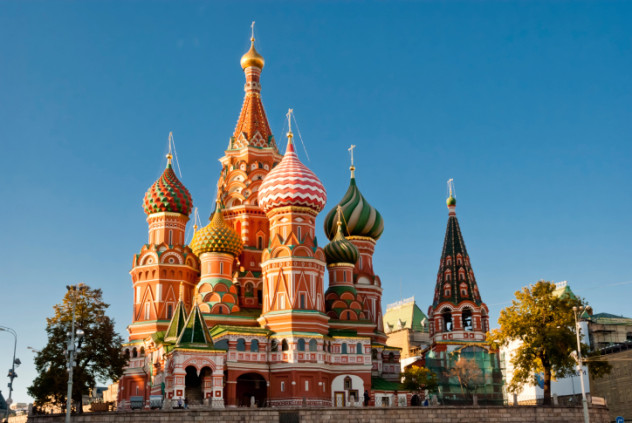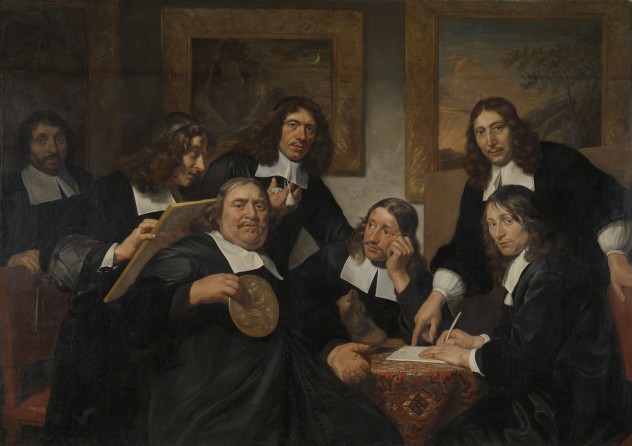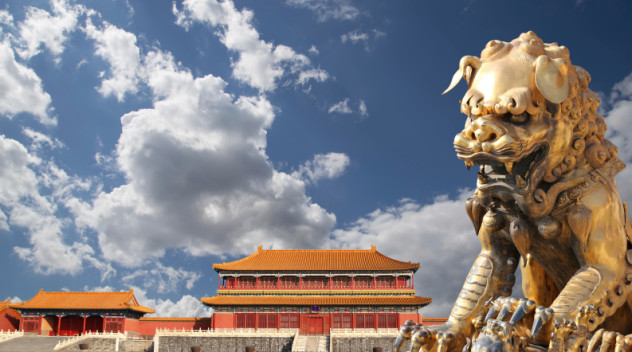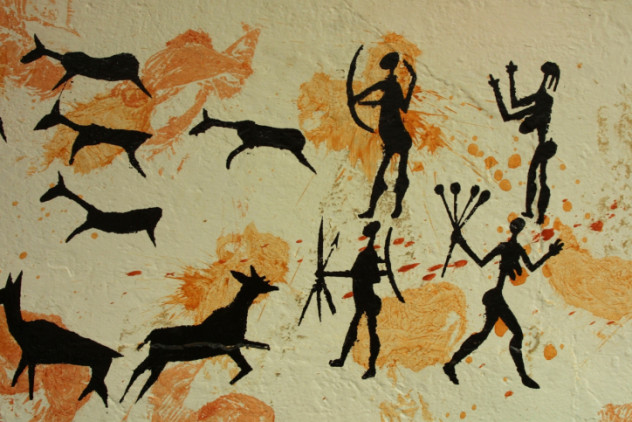10Kritarchy
This system is generally used to describe the period in ancient Israel when the nation was ruled by judges, and many assume that kritarchy is simply that. However, the meaning of kritarchy has evolved in modern times to describe a stateless system that is based on customary law and equal justice. There is no central legislature, merely a body of customary law based on “natural rights.” Judges and police forces are not based on any central authority but are part of a competitive system. You basically choose your judge just as you would choose your lawyer in other systems. This system is actually being practiced in Somalia based around the traditional law system known as the Xeer. Somalia returned to this customary legal system and has lacked a central legislative system since the ouster of dictator Siad Barre and the collapse of the Somali Democratic Republic. The Xeer lacks the executive or legislative branches common to almost all modern states. Xeer laws are consistent and based on several principles. First, clans must pay blood money (diya) in the form of livestock to redress murder, assault, rape, theft, and defamation. They also require family obligations such as dowries, stress the maintenance of harmony between clans through respected members such as elders, and promote the management of resources like water and pastures. The system is held together by a clan loyalty system providing insurance. If a member of one clan harms another, their clan must pay compensation. Those who flout the laws lose the protection of their clan and become outlaws lacking legal redress. The kritarchic nature of the Somali Xeer has inspired Western anarchists and libertarians with the idea of a modern society that does not need to rely on a state to function effectively. The lack of coercive state authority is seen as a benefit which could lead to private investment and economic development. With the customary laws protecting free trade and individual liberties, without the taxation and legislation of a state, free enterprise would surely blossom. In reality, the Xeer system has major problems. It is a male-dominated system where only men bring cases to the elders, so rape of single women usually goes without punishment. The collective payment of diya means that individuals perpetrating crimes usually go unpunished. Despite claims that the Xeer’s decentralized nature makes it akin to the Internet, it shares more in common with traditional societies that value honor over justice.
9Antinatalism
It is a common belief that existing is a good thing. Philosopher David Benatar disagrees. The logic is that while pain is bad and pleasure is good, lack of pain is always good, and lack of pleasure is only bad if people exist to perceive it. The logic follows that having children is morally unjustifiable. While the absence of pain and presence of pleasure are both good, having pain is much worse than not having pleasure. In life, suffering and death are inevitable, while pleasure is contingent on arbitrary factors and is ultimately fleeting. Having children is seen as ultimately selfish. While you might benefit from having children, in terms of the children’s interest, the harm of existence outweighs any possible benefit. Avoiding existence means avoiding pain, which is great, and although it means an absence of pleasure, that’s not so bad considering that without existing you won’t know what you’re missing. Furthermore, it is more morally important to avoid harming someone than benefiting them. Having children definitely harms them through unavoidable pain and death which outweighs the potential joys of living as a justification for creating them. The antinatalist ethos can also be combined with moral concerns over human effects on the environment. This fusion of concepts has led to the development of the Voluntary Human Extinction Movement or VHEMT (pronounced “vehement”). This group was founded by Vietnam vet Les Knight, a former member of Zero Population Growth, which advocated couples having no more than two children. The newer group argues that the impact of humanity on the biosphere has been so catastrophic that the best moral solution is to pursue the extinction of the human race through sterilization. The movement is growing as the world’s population continues to increase, natural habitats are destroyed, and resources are depleted. One French antinatalist activist put it succinctly, “We’re on the Titanic, it would be reckless to take more people aboard when the boat is about to sink!” The group does not advocate forced sterilization or encourage suicide, with the movement’s motto being, “May we live long and die out.” Nor do the views of VHEMT reflect those of all antinatalists. The philosophy has had influence in pop culture through the novels and short fiction of Thomas Ligotti, the music of Zola Jesus, and the character of Rust Cohle on True Detective.
8Eurasianism
In the late 19th century, an intellectual and political movement developed in Russia that sought to define the country as part of the “Orient” rather than Western culture. This culminated in the publishing of a treatise titled Turn to the East in 1921 by the white Russian diaspora that had fled the Revolution. The ideology painted Russia-Eurasia as a civilization influenced by the Mongols and other steppe nomads and distinct from Europe and Asia, a “third continent.” The Russian identity is defined as more communal and less individualistic than Europe, emphasizes civilizations over nation-states, and seeks heavy state control over the economy. A Eurasianist party was formed in Berlin in 1932 with the goal of replacing the Soviet Union with its corrupt Western Marxism with a Eurasian Union. The movement opposed the Bolsheviks, Nazis, and Western liberal democracy, but it ultimately fell apart. The fall of the Soviet Union discredited Communism and gave the ideological space for Eurasianism to make a comeback. A neo-Eurasianist movement known as National Bolshevism was founded by Alexander Dugin who considers it a “fourth way” political movement contrasted with liberal democracy, communism, and fascism. Described as “socialism without materialism, atheism, progressivism, and modernism,” the movement combines elements of communism, fascism, ethnic-Russian nationalism, and Orthodox Christianity. The movement is avowedly anti-racist, anti-capitalist, and anti-Marxist. For Dugin, the conflict of the 21st century will be between the Atlanticists, those in America and Europe who want to establish a global order of liberalism in culture and economics, and the Eurasianists, who support a multi-polar world of diverse cultures. While the resurgence of Eurasianism as a fringe movement would be worrying enough, there are increasing signs that Vladimir Putin is using Eurasianism as a potential successor ideology to defunct Marxist-Leninism. In 2000, the old Commonwealth of Independent States made up of ex-Soviet states was replaced by the Eurasian Economic Community, a body with stronger links and a permanent executive known as the Integration Council. Then, in 2010, a free-trade bloc called the Eurasian Economic Union was formed between Russia, Belarus, and Kazakhstan, with Armenia and Kyrgyzstan joining later. The Customs Union developed into the Eurasian Union in early 2015, seeking to create a giant economic and political bloc to balance the US, EU, and China. Some have seen the annexation of Crimea as a reflection of the Eurasianist impulse behind Russian foreign policy, and Putin has made comments that increase these suspicions. In 2013, Putin told a reporter, “You said that Russia is located ‘between’ the West and the East. But, in fact, it’s the West and the East that are to the left and right of Russia.”
7Corporatism
While the term “corporatism” is used to describe everything from collective bargaining to crony capitalism, it actually refers to a specific 19th-century ideology. The name does not come from “corporation,” but rather from the Latin term corpora, meaning collective bodies. The idea behind corporatism is that society should be organized into political groups based on profession, such as associations of farmers, industrialists, lawyers, doctors, and so forth. These interest groups then act as self-governing bodies that interact with the government and are organized into a hierarchy. Membership is compulsory for those who wish to enter the professions. These associations would replace political parties, and all political status and rights are thus tied into this system of interest group membership. This system resembles a modernized version of the old guild monopoly system of medieval Europe (painter’s guild depicted in painting above). Historically, corporatism became associated with fascist movements and was deplored by liberal democrats and socialists alike in the 20th century. Corporatist structures continue to thrive in East Asia, however. Centralized government influence over businesses and co-opting of social movements helped to spur the rapid economic growth in Japan and South Korea, but also meant that civil society was weaker and more closely tied to government-corporate interests than in the West. Even more strikingly, China passed the Organization Law in 1989, which mandated that every organization must register with the government and be supervised by party or government representatives. In exchange, each organization is given a monopoly over a specific profession, activity, or interest. The collapse of Maoism as a political philosophy has seen the development of these corporatist arrangements designed to produce harmony between the state and society. Corporatism provides a useful political structure for the Chinese communist government and its burgeoning capitalists and civil society to organize without worrying about that liberal democracy stuff. That said, for China, corporatism isn’t the only ideology on the table.
6Great Han Chauvinism
Around 90 percent of the Chinese population is made up of the Han ethnic group, but from the mid-17th century to 1911, China was under the Qing Dynasty, which was founded by non-Han Manchurians that had led a brutal invasion in the 17th century. One of the tenets of the New Republic of China, founded by Sun Yat-sen in 1912, was that the Chinese would never allow such minority rule to happen again. The Qing were also blamed for the decline of Chinese economic and political power versus the West and Japan, and military defeats at the hands of foreign powers such as the Opium Wars and the Sino-Japanese Wars. The new China would be strong and ruled by the majority Han. These ethnocentric and xenophobic tendencies would be criticized in the early Communist era by Mao Zedong, who referred to them as “Da Hanzu Zhuyi,” or Han chauvinism. The anti-racist rhetoric and policies beneficial to minority self-government, language protection, and traditional arts helped to win the support of China’s minority peoples for the communist revolution and reflected the universalist impulse of Maoism. Since the 1980s, the ideological influence of communism has waned with economic reform, while liberal democracy has only marginal influence. In the ideological vacuum, Han chauvinism is resurfacing. The advantage of Han chauvinism for the CCP is that it provides a useful ideology to justify their continued rule over the country. Han chauvinism holds that “Chinese” culture, as in the mainstream culture of the Han majority, is superior and more civilized than that of minority cultures or foreign cultures. It helps provide legitimacy for China’s expanding military policy and stubbornness on issues of international territorial disputes and is also used to justify everything from crushing pro-democracy dissent to targeting egregiously corrupt officials. The negative side has been the aggravation of ethnic conflicts, particularly in Tibet and Xinjiang, and the rise of unpredictable nationalist sentiment sometimes beyond the ability of the CCP to control.
5Hindutva
In 1928, an Indian atheist named Vinayak Damodar Savarkar wrote a pamphlet called “Who is a Hindu/Essentials of Hindutva” which declared that anyone who is from the Indian subcontinent and regards it as a fatherland and holy land is a Hindu. This coincided with the birth of a movement called Rashtriya Swayamsevak Sangh (RSS), which was devoted to serving the Hindu nation. The problem with the ideology is that it left out those who followed a non-Indian religion—like Islam, Christianity, or Judaism—basically asserting that they were not real Indians as their religions originated in the Middle East. While Hinduism historically has been characterized by its pluralism and diversity, the movement developed from a conservative form of the religion which feared being overwhelmed by the monotheistic Abrahamic faiths. These trends led to the development of the chauvinistic Hindutva movement. The influence of Hindu nationalism in India for the first decades of independence was constrained by the secularist philosophy of Jawaharlal Nehru, but Hindutva was revived in the 1990s as a product of the rise of a conservative and religious middle class, as well as a response to Islamic extremism. Many Indian minorities feared the rise of India’s Prime Minister Narendra Modi whose Bharatiya Janata Party (BJP) is considered the moderate face of Hindu nationalism. Modi has been implicated in the Gujarat riots of 2002 that saw the deaths of 1,000 people, mostly Muslims at the hands of Hindus. Acts of violence linked to Hindutva have been on the rise, as well as reports of forced or coerced conversions of Muslims and Christians. In late 2014, controversy arose over the coerced conversion of 57 Muslim families to Hinduism in Ved Nagar, Agra. Some 200 Muslims living in slums were lured by a promise of receiving special “below poverty line” cards which would allow them to access subsidized housing and medical benefits. It turned out to be a ritual purification ceremony to convert them to Hinduism, and the new “converts” were given statues of the goddess Kali in the aftermath and asked if they were happy being Hindu now. The families later claimed that they only went along with the ceremony out of fear of violence. A representative for the Hindu nationalist organization Bajrang Dal saw it a different way, saying, “I strongly object to this term ‘conversion.’ Why don’t you call it homecoming? Go back in history, at least four-five generations; you will see your ancestors were all Hindu. Then, is it homecoming or not?”
4Anarcho-Primitivism
This philosophy believes that the move from a hunter-gatherer lifestyle to an agricultural one was a terrible mistake, and the difficulties that humanity has faced over the last 10,000 years have been largely due to this collective error. They believe in the anarchist dream of the dismantling of the state but take it a step further and say that civilization itself needs to go. For them, abandoning industrial technology and returning to a state of nature will reduce the evils of social stratification, coercive power structures, alienation, and human population growth. Abandoning our civilized ways and reverting to a social structure of hunter-gatherer bands is referred to as “wilding.” Anarcho-primitivist philosopher John Zerzan even believes that symbolic language demeans real, lived experience saying, “Every symbolic dimension—time, language, art, number—is a mediation between ourselves and reality. We lived more directly, immediately before these dimensions arrived.” Anarcho-primitivism is ironically largely the field of intellectuals debating over the Internet, though the trend has manifested in the real world as well. Since 2010, an anarcho-primitivist extremist organization known as Individuals Tending Towards Savagery (ITS) has been responsible for attacks on scientists in Italy, Switzerland, and Mexico. Their targets were those working on the development of nanotechnology, and they were attacked with letter bombs. A related organization, Obsidian Point Circle of Attack, explained its philosophy saying, “We bitterly oppose the progress of the technological or industrial system, its cultural values and its slave society. The physique, character, and mentality of the human being is manipulated and dominated now by machines, our deepest and darkest natural instincts are domesticated with their propaganda on television, radio, internet, newspapers, schools, jobs and universities. Progress kills, sickens and makes everything artificial and mechanical.”
3PEGIDA
The name of this new German protest movement is an abbreviation for Patriotische Europaer Gegen die Islamisierung des Abendlandes, or “Patriotic Europeans Against the Islamisation of the West.” It began as a Facebook group by Lutz Bachman, a graphic designer with several convictions for drug dealing and burglary. A large umbrella organization running from generally conservative to the far right, it has been holding massive rallies against what it sees as the cultural decay of the West in the face of Islamization, immigration, and asylum-seekers. PEGIDA has been praised by neo-Nazi and anti-immigration groups, though it insists that it is not a racist organization. In its 19-point manifesto, it combines classic conservative demands such as “stricter immigration controls” and “protection of Judeo-Christian culture” with liberal policies like “sexual self-determination.” PEGIDA demonstrators seem to reflect a variety of different policy positions, including opposition to battery hen farming and television licenses, but the overall trend is for tighter immigration controls, swift deportation of criminal immigrants, keeping refugees from war zones in the homelands, and forcing immigrants to speak German at home. The PEGIDA movement is centered in Saxony, particularly the city of Dresden, and has the most support in the eastern half of Germany (the former Communist GDR), though it has supporters throughout the country and even abroad. Its rise has come on the coattails of the populist right party Alternative for Germany, a Euroskeptic party opposed to immigration. PEGIDA is an unexpected development: a conservative movement that uses the demonstration tactics usually associate with the left, and a potential headache for those in Berlin who hope for Germany to become the pivot around which Europe turns. It is, in many ways, a reactionary movement. But who are they reacting against?
2Salafism
This movement believes that Islam has strayed from the pure form that was revealed to the Prophet Muhammad and has been corrupted by Western ideologies and philosophies. Its name comes from Al-Salaf Al-Salih, or “the righteous predecessors,” a term used for the companions of the Prophet Muhammad. The philosophical origins of Salafism can be traced back to the Muslim Brotherhood in 1928. A Muslim Brotherhood member, Sayyid Qutb, was imprisoned in 1954 after a botched assassination attempt on Egyptian leader Gamal Abdel Nasser and wrote a series of books that outlined the Salafist worldview. Mankind had strayed from true religion and was corrupt. Human intelligence, morality, and sexuality were in sharp decline. Only through Islam and the establishment of Islamic states could the process be arrested and reversed, according to Qutb. Salafism is opposed to some forms of Islamic law-making such as the Matudiri and Ashari schools, which value reason as a means of revelation. The Salafists believe that these schools have been corrupted by ancient and medieval Western philosophy. Salafism is extremely influential in Saudi Arabia, where it is linked to the Wahhabi fundamentalists. Since the Arab Spring, it has been on the rise throughout the Middle East. Fed up with corrupt governments and economic malaise, some may have turned to the ideal of a pure, seventh-century Islam as a model for modern Islamic society. However, while some have blamed Salafism for the rise of ISIS and other terrorist organizations, this is a gross oversimplification. There is a lot of disagreement in the movement itself, and it is by no means a single monolithic entity hell-bent on conquest. Some Salafis disavow violence, and there were reports of Salafis protecting Christian churches in Egypt during the demonstrations there. However, it remains a rigid moral and political system, averse to minority and women’s rights. As political jihadism has faded, Salafism has moved into the political vacuum and will only grow in strength in the future.
1Universal Basic Income
The idea of a universal basic income is for every individual to be granted an income on an unconditional basis without any form of work or test requirement. This differs from existing entitlements that exist in many countries in that it is to be granted to individuals rather than households, is given without regard for any other source of income, and is without requirements for work of any kind. This income is meant to be enough to survive on comfortably regardless of whether an individual wishes to work or not. This idea has a long history, with Thomas Paine advocating that landowners should pay for their occupation of “the common property of the human race” while Charles Fourier argued that if civilization robbed people of the right to fish, hunt, and gather food at their leisure, then it should recompense them with comfortable lodgings and food. There are a number of benefits to this idea. A universal basic income would save a great deal of paperwork in dealing with complex benefits claims, would be automatically redistributive to families with children, give more flexibility and freedom to workers, make it easier to pursue education, and reduce the power of employers to force people to work unpleasant jobs for low pay. In the 21st century, the development of driverless cars, self-service restaurants and stores, and advances in robotics and automation are almost guaranteed to cause the number of available jobs to plummet while increasing the overall efficiency of the economy. Universal basic income is one way of preventing a situation where a wealthy minority controls an unnecessary amount of wealth while the poor masses are outcompeted by robots and eventually start to break things and burn down mansions. While the idea of a basic income is alien to many, particularly those who follow the Protestant work ethic ideology, its advantages are hard to deny for a 21st-century economy. Switzerland is scheduled to vote on a national basic income in 2016, and in the town of Cherokee, North Carolina, the Eastern Band of the Cherokee Nation has been dividing half of the profits from its casino with the town, which also owns the land. This has basically created a de facto basic income for the town since 1996, the results of which have been increased academic achievement and reduced rates of crime and poverty. The idea might be worth a try, unless you really want to give communism another spin until the robots rise up and destroy us all. David Tormsen is basically an anarcho-demarchist, but rather likes the Queen.
























